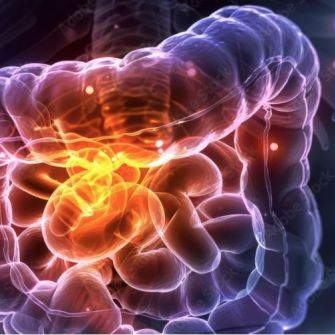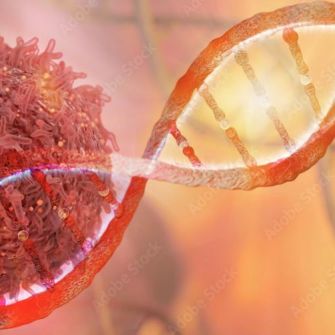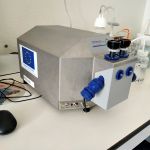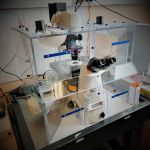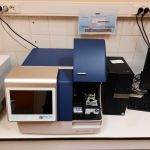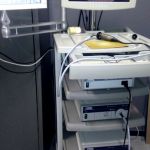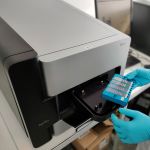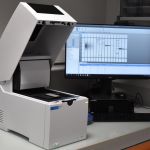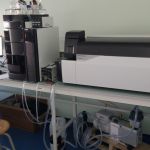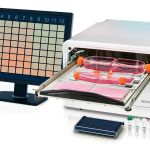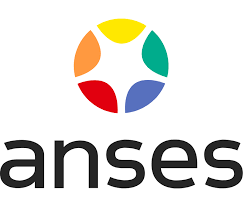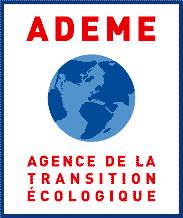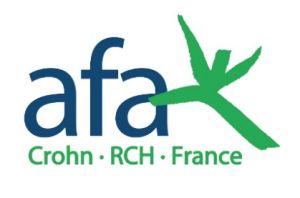Key numbers of the unit
- 47 Lecturers and professor
- 2 Staff scientists
- 39 Qualified research supervisors (HDR)
- 13 Technical and administrative staff
- 27 / 1 phD students /
Postdocs students - 457 Publications ACL
2019-2024
Research topics / Know-how
Monocarbon metabolism and epigenomics of the developmental origins of hereditary and complex diseases
Early deficiency of methyl-donor micronutrients creates fetal programming mechanisms for rare and complex diseases. This results from complex mechanisms in which interactions between genetics, epigenomics and metabolic and nutritional factors of monocarbon metabolism (1-CM) play a predominant role. The team is dissecting these interactions to study the pathogenesis of pathological obesity, neurodevelopmental diseases (group 1), rare metabolic diseases (group 2) and complex diseases linked to fetal programming (group 3).
Contact(s) :
Rosa-Maria RODRIGUEZ-GUEANTrosa-maria.gueant-rodriguez [at] univ-lorraine.frCarine BOSSENMEYER-POURIEcarine.pourie [at] univ-lorraine.frDavid COELHOdavid.coelho [at] inserm.frEnvironment, integrative biology, and precision medicine of obesity and its comorbidities
Obesity and its co-morbidities result from the interplay between environmental (e.g. unhealthy diet, physical inactivity, stress, pollution) and biological factors (sex, age, hormonal changes (e.g. puberty, pregnancy, menopause, andropause), gut microbiota, fetal programming, epigenetics and genetics). Our main objective is to elucidate the determinants of obesity and its comorbidities and to accelerate the shift from conventional to precision medicine of obesity in France and in the world. The project will consider 4 subsets of obesity, environmental obesity, developmental obesity, monogenic obesity and polygenic obesity.
Contact(s) :
David MEYREdavid.meyre [at] univ-lorraine.frIntegrative and targeted approaches in inflammatory bowel diseases (IBD)
Our objective is to study the pathophysiology of IBD through a translational approach aimed at characterizing the impact of the exposome in the molecular and cellular mechanisms at the origin of these pathologies. The team also develops therapeutic innovation and non-invasive monitoring projects through numerous local, national and international collaborations. This work is at the heart of the IHU INFINY scientific program regarding fundamental and translational research.
Contact(s) :
Laurent PEYRIN-BIROULETlaurent.peyrin-biroulet [at] univ-lorraine.frDjesia ARNONEdjesia.arnone [at] univ-lorraine.frMultiomics and predictive biomarkers in tumoral pathologies
Our objective is to study the biological mechanisms underlying the genesis, evolution and mechanisms of tumor resistance to identify new therapeutic targets in indolent and transformed B-cell lymphomas, central nervous system tumors, broncho- pulmonary and olfactory cleft cancers. We develop integrative approaches in multiple omics and bioinformatics tools dedicated to cancer genomics.
Contact(s) :
Julien BROSÉUSjulien.broseus [at] univ-lorraine.frGuillaume GAUCHOTTEguillaume.gauchotte [at] univ-lorraine.fr
Staff

Caroline REPPERT Administrative Manager UL
David COELHO Co Director
David MEYRE Director UL, CHRU
Laurent PEYRIN-BIROULET Co Director
phD students
- 5A these 2025Irina ROTARUSpécificités cellulaires métaboliques de l'invalidation du gène de la méthionine synthaseCellular metabolic specifics of methionine synthase gene invalidationDirecteur de thèse :Rosa-Maria GUEANT-RODRIGUEZ
- 5A these 2024VINCENT HAGHNEJAD BURCHERIContribution de TREM-1 aux maladies stéatosiques du foieContribution of TREM-1 to fatty liver diseasesDirecteur de thèse :Jean-Pierre BRONOWICKICo-directeur de thèse :Jean-Louis GUEANT
- 4A these 2025CLAIRE NOMINEFacteurs prédictifs de reprise pondérale après chirurgie bariatriquePredictive factors for weight regain after bariatric surgeryDirecteur de thèse :Laurent BRUNAUD
- 4A these 2025Jordi ROMADéveloppement d'un cadre de modélisation multi-échelles par contraintes intégrant le métabolisme, la régulation épigénétique et le microbiomeDevelopment of a multi-scale constraint-based modeling framework integrating metabolism, epigenetic regulation, and the microbiomeDirecteur de thèse :Jean-Louis GUEANTCo-directeur de thèse :Almut HEINKEN
- 4A these 2025ELISE POURIÉConséquence d'une altération du métabolisme des monocarbones dans la physiopathologie de Huntington.Consequences of altered one carbon metabolism in the pathophysiology of Huntington's diseaseDirecteur de thèse :Mathilde RENAUD
- 4A these 2025NICOLAS SCHEYERInteractions entre métabolisme des monocarbones et axe corticotrope : approche expérimentale et clinique (étude MONOCORT)Interactions between the metabolism of monocarbon compounds and Hypothalamic-pituitary-adrenal axis : an experimental and clinical approach (the MONOCORT study)Directeur de thèse :Brigitte LEININGER-MULLERCo-directeur de thèse :Rosa-Maria GUEANT-RODRIGUEZ
- 3A these 2025GUILLEMETTE CLEMENTEtude de la N-homocystéinylation des protéines clés dans la maladie d'Alzheimer (HO-MA)Study of N-homocysteinylation of Tau and MAP1 in Alzheimer's diseaseDirecteur de thèse :Carine BOSSENMEYER-POURIECo-directeur de thèse :Mathilde RENAUD
- 3A these 2025AMINA DOUDOUPerturbations du métabolisme des monocarbones et méthylation des ARNm : rôle dans le développement de l'hépatocarcinomeAlterations in one-carbon metabolism and m6A mRNA methylation : contributions to the development of hepatocarcinomaDirecteur de thèse :Natacha DREUMONTCo-directeur de thèse :Jean-Pierre BRONOWICKI
- 3A these 2025Noémie CAMMICIOTTOEtude de l'état de cataplérose dans les aciduries organiques et dans le choc septique et de sa prise en charge par l'acide carglumique et diverses molécules anaplérotiques sur modèles cellulaires et modèles murins.Study of the state of cataplerosis in organic aciduria and in septic shock and its management by carglumic acid and various anaplerotic molecules on cell models and mouse models.Directeur de thèse :François FEILLETCo-directeur de thèse :Arnaud WIEDEMANN
- 3A these 2025Maud FERTIGEffet synergique de la carence gestationnelle en folate et l'exposition aux toxiques environnementaux sur le développement cérébralSynergistic effects of folate gestational deficiency and exposure to environmental pollutants on brain developmentDirecteur de thèse :Brigitte LEININGER-MULLERCo-directeur de thèse :Ramia SAFAR-ALSAIED
- 3A these 2024Romain PIUCCOCaractérisation épigénétique et protéomique du syndrome de RichterEpigenetic and proteomic characterization of Richter syndromeDirecteur de thèse :Julien BROSEUSCo-directeur de thèse :Sébastien HERGALANT
- 3A these 2024Sandra EL KOUCHEAssociation entre l'exposition à diverses classes de polluants perturbateurs endocriniens, le stress, et les variations de poids chez le jeune adulte.Association between endocrine disruptors, stress, and weight variations in young adults.Directeur de thèse :David MEYRE
- 2A these 2025SOUMEN KONARCD Dynamique nutritionnelle, signatures épigénétiques et microbiote intestinal : Anatomie d'un carrefour de la programmation fœtale de l'obésité pédiatriqueCD Unveiling the Crossroads: Nutritional Dynamics, Epigenetic Signatures, and Gut Microbiota in Fetal Programming of Pediatric ObesityDirecteur de thèse :Jean-Louis GUEANTCo-directeur de thèse :Thomas SauterCo-tutelle :University of Luxembourg
LUXEMBOURG - 2A these 2025WAEL ABDEL KARIMCartographie fine de l'association entre les polymorphismes codants non-synonymes du gène NPC1 et l'obésité adulte identifiée par étude d'association pangénomique dans la population européenneFine mapping of the association between non-synonymous coding polymorphisms of the NPC1 gene and adult obesity identified by genome-wide association study in the European populationDirecteur de thèse :Natacha DREUMONT
- 2A these 2025CELIE NIGONNeuroinflammation Induite par une Exposition Précoce à l'α-Héxabromocyclododécane chez le rat : Impact sur la Connectivité Neuronale dans l'émergence des Troubles du Spectre AutistiqueNeuroinflammation induced by early exposure to α-HexaBromoCycloDoDecane in rats: impact on neuronal connectivity in the emergence of autism spectrum disordersDirecteur de thèse :Henri SCHROEDERCo-directeur de thèse :Chloé MOREL
- 2A these 2025MELISSA CURAKUImpact des facteurs environnementaux sur les changements épigénétiques des patients atteints de maladies inflammatoires chroniques de l'intestin.Impact of environmental factors on epigenetic changes in patients with inflammatory bowel diseases.Directeur de thèse :Catherine MALAPLATECo-directeur de thèse :MARIE BOUDAUD
- 2A these 2025CLAIRE MASIImpact des Microplastiques alimentaires dans la sévérité de l'inflammationintestinaleImpact of Food Microplastics on the Severity of InflammationintestinalDirecteur de thèse :Natacha DREUMONTCo-directeur de thèse :Djésia ARNONE
- 2A these 2025ZEINAB ALSAHLYEtude de l'efficacité et de la sécurité de nanoclusters de fer pour pallier lescarences martiales sur modèles cellulaires et murinsStudy of the effectiveness and safety of iron nanoclusters to compensate for iron deficiencies in cellular and mouse modelsDirecteur de thèse :David COELHOCo-directeur de thèse :François FEILLET
- 2A these 2025LEO JANNOTModulation de l'échappement immunitaire dans le neuroblastome : Amélioration de l'efficacité de l'approche immunothérapeutique et ciblage des cellules souches cancéreusesMODULATION OF THE IMMUNE ESCAPE IN NEUROBLASTOMA: FOCUS ON INCREASE EFFICIENCY OF IMMUNOTHERAPEUTIC APPROACHES AND TARGETING OF CANCER STEM CELLSDirecteur de thèse :Hervé SARTELETCo-directeur de thèse :Cécile POCHON
- 2A these 2025MARGAUX DA COSTACD Modulation de la réponse gliale dans la Maladie d'Alzheimer via la régulation d'ApoECD Gliosis Modulation in Azheimer disease through ApoE regulationDirecteur de thèse :Thomas CLAUDEPIERRECo-directeur de thèse :Sandra KAMINSKI
- 2A these 2024Ghislain FIEVETIntelligence artificielle explicable pour la fiabilité des algorithmes d'apprentissage automatique, l'analyse et la découverte dans les données omiques.Explainable artificial intelligence for the reliability of machine learning algorithms, analysis and discovery in omics data.Directeur de thèse :Julien BROSEUSCo-directeur de thèse :Sébastien HERGALANT
- 1A these 2025ELODIE PAULYCD Hétérogénéité intra-tumorale, stress métabolique et plasticité des cellules souches cancéreuses.CD Intratumor heterogeneity, metabolic stress and cancer stem cell plasticityDirecteur de thèse :Bernard NAMOURCo-directeur de thèse :Isabelle DULUC
- 1A these 2025JADE TOMASSONECD Ciblage des mécanismes impliqués dans l'émergence des troubles psychiques induits par une carence périnatale en micronutriments donneurs de méthyle et une perturbation de l'axe microbiote – intestin – cerveau.CD Targeting the mechanisms underlaying the psychic disorders in a context of perinatal methyl donor deficiency and the modulation of the microbiota-gut-brain crosstalk.Directeur de thèse :Grégory POURIECo-directeur de thèse :Tunay KOKTEN
- 1A these 2025MARGOT BALESTRERICD Réduire les atteintes de la maladie de Huntington en ciblant les protéines N-HomocystéinyléesCD Reducing Huntington's Disease damage by targeting N-Homocysteinylated proteinsDirecteur de thèse :Carine BOSSENMEYER-POURIECo-directeur de thèse :Mathilde RENAUD
- 1A these 2025SARA SALZARDCD Facteurs de risque et processus neurodégénératifs dans la maladie d'Alzheimer : rôles du REnouvellement des LIpides membranaires dans la Fonctionnalité du récepteur MC4R et intérêt d'un peptide ApoE-like encapsulé en nanoliposomesCD Risk factors and neurodegenerative processes in Alzheimer's disease: the role of membrane lipid turnover in the functionality of the MC4R receptor and the interest of an ApoE-like peptide encapsulated in nanoliposomesDirecteur de thèse :Catherine MALAPLATECo-directeur de thèse :Thierry OSTER
- 1A these 2025KAOUTAR MTITOUCaractérisation des expositions multiples des travailleurs dans le secteur de recyclage des déchets par une approche métabolomique globaleCharacterization of Multiple Exposures of Workers in the Waste Recycling Sector by a Global Metabolomics ApproachDirecteur de thèse :Nathalie GROVACo-directeur de thèse :Baninia HABCHI
- 1A these 2025REBIHA ZERKEFEvaluation de l'exposition professionnelle aux substances per- et polyfluoroalkylées : Développement et validation de méthodes biométrologiques multi-résidus et multi-matricesAssessment of occupational exposure to per- and polyfluoroalkyl substances: Development and validation of multi-residue and multi-matrix biomonitoring methodsDirecteur de thèse :Nathalie GROVACo-directeur de thèse :Amandine ERB
- 1A these 2024SONIA IMELHAINEObésité monogénique nonsyndromique : prévalence, pénétrance,caractéristiques phénotypiques, etréponse à la prise en charge médico-psychiatrique et chirurgicaleMonogenic non syndromic obesity : prevalence, penetrance,phenotypic characteristics, and response to medical-psychiatric and surgicalDirecteur de thèse :David MEYRECo-directeur de thèse :Arnaud DE LUCA
- 1A these 2024MELIHA MAHMUTOVICDéfinition des phénotypages de l'obésité, étude des conséquences des dépôts de masse grasse sur les comorbidités et la sarcopénieDefinition of obesity phenotypes, study of the impact of fat deposits on comorbidities and sarcopeniaDirecteur de thèse :Didier QUILLIOT
Pas de soutenance pour le moment
- SANDRA EL KOUCHEObésité et diabète d'origine monogénique : prévalences, impact phénotypique et signatures évolutives dans les populations humainesMonogenic obesity and diabetes: prevalence, phenotypic impact, and evolutionary signatures in human populationsDirecteur de thèse :Sophie RAHUEL-CLERMONT
- GHISLAIN FIEVETIntelligence artificielle explicable pour la fiabilité des algorithmes d'apprentissage automatique, l'analyse et la découverte dans les données omiqueseXplainable Artificial Intelligence for the reliability of machine learning algorithms, analysis and discovery in omics dataDirecteur de thèse :Julien BROSEUSCo-directeur de thèse :Sébastien HERGALANT
- ROMAIN PIUCCOcaractérisation épigénétique et protéomique du syndrome de richterepigenetic and proteomic characterization of richter syndromeDirecteur de thèse :Julien BROSEUSCo-directeur de thèse :Sébastien HERGALANT
- PAUL HENRI GRAINDORGEImpact d'une exposition aux hydrocarbures aromatiques polycycliques en tant que facteur aggravant de la maladie hépatique stéatosique associée à un dysfonctionnement métabolique et ses conséquences neurologiques chez le rat adulteImpact of polycyclic aromatic hydrocarbons exposure as an aggravating factor in steatotic liver disease associated with metabolic dysfunction and its neurological consequences in adult ratsDirecteur de thèse :Nathalie GROVACo-directeur de thèse :Henri SCHROEDER
- ADRIENNE ASTRID GALLIZZIImplication des neutrophiles dans les reactions d'hypersensibilité immédiate aux bétalactamesInvolvement of neutrophils in immediate hypersensitivity reactions to betalactamesDirecteur de thèse :Jean-Louis GUEANTCo-directeur de thèse :Almut HEINKEN
- Sébastien HERGALANTGénomique des maladies rares et complexes/communes du métabolisme et de ses comorbiditésGenomics of rare and complex/common metabolic diseases and their comorbiditiesDirecteur de thèse :David MEYRE
- JEAN-MARIE RAVELApport des outils bio-informatiques à l'étude de pathologies humaines par l'analyse de réseaux moléculaires et à l'amélioration des pratiques en génétique médicale.The contribution of bioinformatics tools to the study of human pathologies through the analysis of molecular networks and the improvement of medical genetics practices.Directeur de thèse :Inna KUPERSTEINCo-directeur de thèse :Céline BONNET
- PAULINE DIMOFSKICarence en donneurs de méthyles d'origine paternelle : impact sur le développement cérébral et le transport des folatesPaternal methyl donor deficiency : impact on cerebral development and folate transport.Directeur de thèse :Brigitte LEININGER-MULLERCo-directeur de thèse :Natacha DREUMONT
- ARNAUD EDMOND WIEDEMANNEtude comparative des aspects cliniques et physiopathologiques des erreurs innées du métabolisme de la vitamine B12 en fonction de l'âgeComparative study of the clinical and physiopathological aspects of inborn errors of vitamin B12 metabolism according to agingDirecteur de thèse :Jean-Louis GUEANTCo-directeur de thèse :Abderrahim OUSSALAH
- MARIE MULLERLymphome et Maladie Inflamatoire chronique de l'Intestin : une étude multicentrique française de grande ampleurLymphoma in patients with inflammatory bowel disease: a French multicentric retrospective nation wide study from getaidDirecteur de thèse :Laurent PEYRIN-BIROULET
- KARIM MATMATInfluence de la méthionine synthase sur la neurogenèse postnatale &<br />
Conséquences ophtalmologiques de l’invalidation de la méthionine synthase.Influence of methionine synthase on postnatal neurogenesis &<br />
Ophthalmological consequences of invalidation of methionine synthase.Directeur de thèse :Rosa-Maria GUEANT-RODRIGUEZCo-directeur de thèse :Jean-Baptiste CONART - YOUSSEF SIBLINIépivariations du génome entier et du promoteur du gène mmachc induites par les facteurs de stress cellulaire et la transcription anti-sens aberrante dans les cellules normales, pluripotentes et cancéreusesgenome-wide and mmachc gene promoter epivariations induced by cellular stress factors and aberrant antisense transcription in normal, pluripotent, and cancer cellsDirecteur de thèse :Jean-Louis GUEANTCo-directeur de thèse :Abderrahim OUSSALAH
- ANNE-CHARLOTTE HEBALa restriction de l’apport alimentaire préventive dans la prise en charge des maladies inflammatoires chroniques de l’intestin dans un modèle murin.Preventive diet restriction in the management of chronic inflammatory bowel disease in a mouse model.Directeur de thèse :Laurent PEYRIN-BIROULETCo-directeur de thèse :Ndeye Coumba NDIAYE
- ADRIEN AUDRYModèle BMDC : l’apport de l’étude des mécanismes intracellulaires pour l’évaluation du pouvoir sensibilisant de substances industrielles.BMDC model : intracellular mechanisms study for the sensitizing power’s evaluation of industrial chemicalsDirecteur de thèse :Brigitte LEININGER-MULLER
- ZIAD HASSANEtude des mécanismes physiopathologiques à l’origine des dysfonctionnements du système nerveux central associés aux maladies rares du métabolisme de la vitamine B12 et innovation thérapeutiqueStudy of the molecular mechanisms at the origin of the neurocognitive impairment associated with rare genetic diseases of the vitamin B12 metabolism and therapeutic innovationDirecteur de thèse :Grégory POURIECo-directeur de thèse :David COELHO
- MAËLLE QUEREGlioblastome et méthionine-dépendance : identification des mécanismes moléculaires pour définir des nouvelles cibles thérapeutiquesGlioblastoma and methionine-dependence: identification of molecular mechanisms as basis for new therapeutic targetsDirecteur de thèse :Bernard NAMOURCo-directeur de thèse :Shyue-Fang HSU-BATTAGLIA
- PAULINE MOSCAImpact d’une carence en vitamines B9 et B12 sur l’épitranscriptome m6A et la méthylation des protéines histonesAlterations of the m6A epitranscriptome and histones methylation following vitamins B9 and B12 deficiencyDirecteur de thèse :Bruno LEHEUPCo-directeur de thèse :Natacha DREUMONT
- Djésia ARNONEInfluence de la consommation alimentaire en sucre sur la sévérité de la colite chez l'animal via la modulation du microbiote intestinalInfluence of dietary sugar consumption on colitis severity in mice and modulation of gut microbiotaDirecteur de thèse :Laurent PEYRIN-BIROULETCo-directeur de thèse :Franck HANSMANNEL
- Darlene ANTOINEÉtude intégrative des facteurs environnementaux, de la génétique et de l’épigénétique du patient atteint d’obésité avant et après la chirurgie bariatriqueIntegrative study of environmental factors, genetics, and epigenetics of the patient with obesity before and after bariatric surgery<br />
<br />
<br />
<br />
<br />
<br />
<br />
<br />
Directeur de thèse :Rosa-Maria GUEANT-RODRIGUEZ
Equipment
The NGERE unit studies the impact of epigenetic modifications caused by nutritional imbalances and/or congenital deficiencies related to the metabolism and transport of vitamin B12 in humans.
The experimental protocols implemented in our laboratory use samples such as serum, plasma, biopsies or cell cultures of human or animal origin (nutritional and/or transgenic models).
In order to carry out its scientific projects and to fully exploit the samples at its disposal, the unit has carried out for several years a policy of acquisition of high technology equipment bought partly on its own funds or via equipment campaigns such as the CPER-BIOS or the structuring call for projects of the BMS pole.
Services
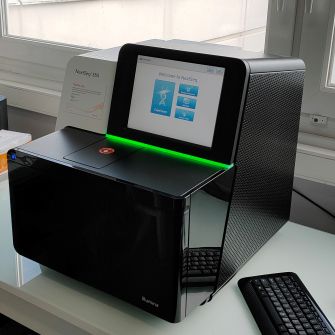
Functional genomics core facility
The UMS2008 Functional Genomics Core Facility was created in 2012 and is built on the expertise of the UMR1256 n-GERE in the field of NGS sequencing for rare disease patients.
The Core Facility provides to the scientific, academic and industrial community high-tech equipment adapted to the projects of:
- High throughput genotyping on BeadChip Infinium Illumina chips.
- Study of the methylation of the human genome on Infinium Methylation EPIC-Illumina chips.
- Preparation and NGS sequencing of DNA libraries (MiSeq-Illumina sequencer, soon NextSeq 550-Illumina).
- Bioinformatic analysis of omics data.
Contact(s) :
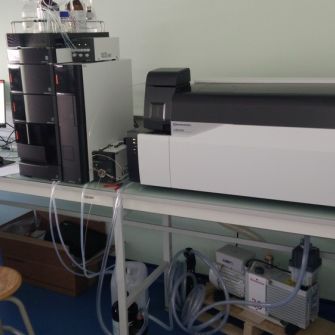
Metabolic phenotyping
NGERE is equipped with a mass spectrometer (Shimadzu LCMS 8045, LC-MS/MS ESI triple quad) enabling the simultaneous analysis of numerous molecules involved in various metabolic pathways such as energy metabolism, monocarbon metabolism, organic acid metabolism, etc. In order to broaden its spectrum of analysis, we are also equipped with a complementary module, the DPiMS, enabling metabolomic analysis from raw biopsies or histological sections normally incompatible with this type of instrument. This device enables us to routinely analyze and quantify various constituents in order to establish metabolic phenotyping on our cellular or animal models, or to study patient cohorts from plasma samples.
To complete this metabolic phenotyping, we also have a range of high-tech instruments at our disposal, such as a high-resolution oxygraph for in vivo measurement of mitochondrial respiration (Oroboros O2k), a spectral scanning microplate reader equipped with automated injectors for absorbance, luminescence and fluorescence detection (Molecular devices iD3) and an HPLC chain (Dionex, Ultimate 3000) needed to establish metabolic profiles on all our study models.
Contact(s) :
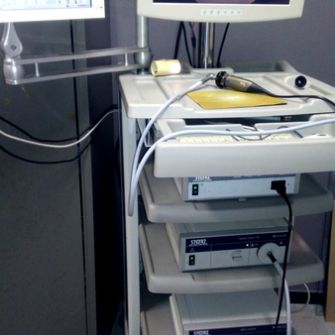
Functional study on gut brain axis
The use of animals for scientific purposes remains essential for the understanding of pathophysiological mechanisms and the search for new therapies for degenerative diseases. Our project aims to understand the molecular mechanisms linking disorders of monocarbon metabolism to degenerative pathologies of the liver, heart and brain, as well as the mechanisms involving the gut microbiota in the onset and evolution of chronic inflammatory bowel diseases. Our various experimental rodent models enable us to conduct behavioral, physiological and pharmacodynamic studies.
In addition to an animal facility which houses our animals in compliance with current ethical rules, our laboratory has both the equipment and the skills to explore the functional characteristics of our animals, thanks to very specific instruments such as the AIDA (Karl Storz) endoscope needed to establish a diagnosis by colorectal endoscopy, or an HR camera coupled with ViewPoint (videotracking) software dedicated to the acquisition of data generated during neurobehavioral tests.
Contact(s) :
Networks / Funding / Partners
-
ANR France 2030, « IHU INFINY » « Institut hospitalo-universitaire (IHU) des maladies inflammatoires chroniques de l’intestin (MICI)» Porteur - Laurent PEYRIN-BIROULET, le CHRU de Nancy, la Métropole du Grand Nancy, l’Université de Lorraine et l’INSERM Est
-
ANR, 2022-2025, « EPIGONE » « EpiGenOmics/genomic/metabolic interplay in pathomechanisms of iNborn Errors of methionine metabolism » Porteur - Jean-Louis GUÉANT
-
ANR, 2024-2026, « PREDICTS » « Multi-omic PREdictors of Diagnosis, prognosis and monitoring of Inherited errors of Cobalamin meTaboliSm » Porteur - Rosa-Maria RODRIGUEZ GUÉANT
-
-
Ligue contre le Cancer, 2024-2025, « 1CCHC » « Perturbations du métabolisme des monocarbones et méthylation des ARNm : rôle dans le développement de l'hépatocarcinome » Porteur - Natacha DREUMONT
-
Ligue contre le Cancer, 2024-2025, « RICHTER » « Caractérisation du phosphoprotéomique du syndrome de Richter » Porteur - Julien BROSEUS
-
- Contrat AVIESAN, 2021-2025, « FHU ARRIMAGE » « Assessment and integrative Research on Remodelng-Inflammation-MetAbolic Stress in systemic and hepatoGastrointestinal mEtabolic diseases », Porteur - Jean-Louis GUÉANT
- Contrat AVIESAN, 2021-2025, « FHU CURE » « CUring and pREventing chronic inflammatory condition », Porteur - Laurent PEYRIN-BIROULET
Unit events
- Radioactivity sector
An inspection of the NGERE premises by the French Nuclear Safety Authority took place on March 5, 2020, in the presence of the persons concerned, in order to obtain the renewal of the approval.
- Acquisition of equipment
- Installation of a NextSeq 550 Illumina sequencer in the premises of the functional genomics core facility (UMS2008/US40 IBSLor).
- Within the framework of the CPER-BIOS 2015-2020 (led by Inserm), an LCMS-8045 mass spectrometer (Shimadzu) as well as an associated nitrogen generator and a DPiMS module allow metabolomic analyses on biological fluids, cell and tissue extracts and histological sections.
- Notifications of MESRI projects following a favorable opinion from the Ethics Committee on animal experimentation
- Pr. Carine BOSSENMEYER-POURIE / Dr. Grégory POURIE: Influence of a methyl donor deficiency on the development of Huntington's disease: study on a Htt-Q111 mouse model.
- Pr. François FEILLET / Dr. Jean-Marc ALBERTO : Study of tolerance and brain passage of a new therapeutic for Menkes disease.
- Pr. Jean-Pierre BRONOWICKI : Impact of TREM-1 inhibition on the physiopathology of acute alcoholic hepatitis.
- Pr. Jean-Pierre BRONOWICKI / Dr. Racha ZGHEIB : Impact of TREM-1 inhibition on the pathophysiology of acute alcoholic hepatitis.
- Pr. Brigitte LEININGER-MULLER / Dr. Natacha DREUMONT: Consequences of paternal folate deficiency on brain development in rats.
- Dr. Djésia ARNONE / Pr. Laurent PEYRIN-BIROULET: Impact of dietary caloric intake on intestinal inflammation.
- GMO approval
- Authorization granted for the project: "Study of the consequences of Huntingtin homocysteinylation in the pathophysiology of Huntington's disease in the hdhQ111 mouse".
- Authorization granted for the project: "Impact of dietary caloric intake on intestinal inflammation".
Publications
- Acute severe ulcerative colitis trials: the past, the present and the future- Gut - 10.1136/gutjnl-2024-332489Sailish Honap, Vipul Jairath, Bruce E Sands, Parambir S Dulai, Silvio Danese, Laurent Peyrin-Biroulet
- Navigating the complexities of drug development for inflammatory bowel disease- Nat Rev Drug Discov - 10.1038/s41573-024-00953-0Sailish Honap, Vipul Jairath, Silvio Danese, Laurent Peyrin-Biroulet
- Towards personalized genome-scale modeling of inborn errors of metabolism for systems medicine applications- Metabolism - 10.1016/j.metabol.2023.155738Almut Heinken, Sandra El Kouche, Rosa-Maria Guéant-Rodriguez, Jean-Louis Guéant
- - Nat Commun - 10.1038/s41467-022-34642-6Julien Broséus, Sébastien Hergalant, Julia Vogt, Eugen Tausch, Markus Kreuz, Anja Mottok, Christof Schneider, Caroline Dartigeas, Damien Roos-Weil, Anne Quinquenel, Charline Moulin, German Ott, Odile Blanchet, Cécile Tomowiak, Grégory Lazarian, Pierre Rouyer, Emil Chteinberg, Stephan H. Bernhart, Olivier Tournilhac, Guillaume Gauchotte, Sandra Lomazzi, Elise Chapiro, Florence Nguyen-Khac, Céline Chery, Frédéric Davi, Mathilde Hunault, Rémi Houlgatte, Andreas Rosenwald, Alain Delmer, David Meyre, Marie-Christine Béné, Catherine Thieblemont, Peter Lichter, Ole Ammerpohl, Jean-Louis Guéant, Romain Guièze, José Ignacio Martin-Subero, Florence Cymbalista, Pierre Feugier, Reiner Siebert, Stephan Stilgenbauer
- - Crit Rev Biochem Mol Biol - 10.1080/10409238.2021.1979459Jean-Louis Guéant, Rosa-Maria Guéant-Rodriguez, Viola J Kosgei, David Coelho
- A noncoding RNA modulator potentiates phenylalanine metabolism in mice- Science - 10.1126/science.aba4991Yajuan Li, Zhi Tan, Yaohua Zhang, Zhao Zhang, Qingsong Hu, Ke Liang, Yao Jun, Youqiong Ye, Yi-Chuan Li, Chunlai Li, Lan Liao, Jianming Xu, Zhen Xing, Yinghong Pan, Sujash S Chatterjee, Tina K Nguyen, Heidi Hsiao, Sergey D Egranov, Nagireddy Putluri, Cristian Coarfa, David H Hawke, Preethi H Gunaratne, Kuang-Lei Tsai, Leng Han, Mien-Chie Hung, George A Calin, Fares Namour, Jean-Louis Guéant, Ania C Muntau, Nenad Blau, V Reid Sutton, Manuel Schiff, François Feillet, Shuxing Zhang, Chunru Lin, Liuqing Yang
- - Metabolism - 10.1016/j.metabol.2019.153992Rose Ghemrawi, Carole Arnold, Shyue-Fang Battaglia-Hsu, Grégory Pourié, Isabelle Trinh, Christine Bassila, Charif Rashka, Arnaud Wiedemann, Justine Flayac, Aurélie Robert, Natacha Dreumont, François Feillet, Jean-Louis Guéant, David Coelho
- Benefits and limitations of genome-wide association studies- Nat Rev Genet - 10.1038/s41576-019-0127-1Vivian Tam, Nikunj Patel, Michelle Turcotte, Yohan Bossé, Guillaume Paré, David Meyre
- - J Pathol - 10.1002/path.5254Carine Bossenmeyer-Pourié, A David Smith, Sylvain Lehmann, Vincent Deramecourt, Bernard Sablonnière, Jean-Michel Camadro, Grégory Pourié, Racha Kerek, Deborah Helle, Remy Umoret, Rosa-Maria Guéant-Rodriguez, Valérie Rigau, Audrey Gabelle, Jeffrey M Sequeira, Edward V Quadros, Jean-Luc Daval, Jean-Louis Guéant
- - Nat Commun - 10.1038/s41467-017-02306-5Jean-Louis Guéant, Céline Chéry, Abderrahim Oussalah, Javad Nadaf, David Coelho, Thomas Josse, Justine Flayac, Aurélie Robert, Isabelle Koscinski, Isabelle Gastin, Pierre Filhine-Tresarrieu, Mihaela Pupavac, Alison Brebner, David Watkins, Tomi Pastinen, Alexandre Montpetit, Fadi Hariri, David Tregouët, Benjamin A Raby, Wendy K Chung, Pierre-Emmanuel Morange, D Sean Froese, Matthias R Baumgartner, Jean-François Benoist, Can Ficicioglu, Virginie Marchand, Yuri Motorin, Chrystèle Bonnemains, François Feillet, Jacek Majewski, David S Rosenblatt




